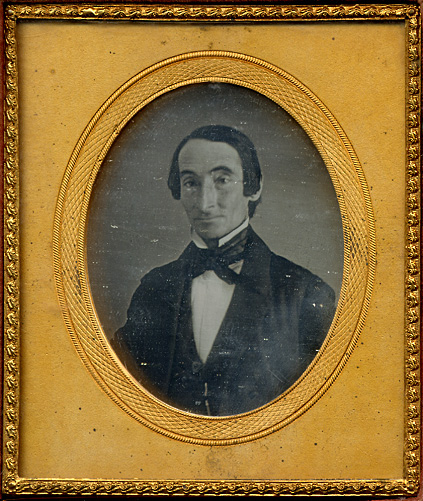

3. Calvin Carver Damon
Calvin Carver Damon, first proprietor of Damon Mill, was born in 1803 in Amherst, New Hampshire to Deacon Benjamin and Polly Hosea Damon. His father had a farm and ran a sawmill, but Calvin’s ambitions extended beyond rural New Hampshire. While still in his teens, he left the farm and went to work at a store in Concord, New Hampshire. About this time he made the acquaintance of John Marland, whose father was considered a pioneer in manufacturing. Damon accepted Marland’s offer of a position in a mill in Andover, and worked in the counting room for the next two years. He then left the textile industry and ran a country store—Farnham and Damon—with Edwin Farnham. In late 1831 he returned to the mills, again at the invitation of John Marland, to act as supervisor of Marland’s woolen mill at Saxonville, Massachusetts. By early 1833 he had formed a partnership with Marland, but soon bought out his interest and conducted the business as sole proprietor until May 1835, when the mill was destroyed by fire. In 1834, while he was operating the Saxonville mill, he purchased a mill and other property from James Derby in what is now West Concord, but was then known as Factory Village. The mill had been producing satinet, a fabric commonly used for men’s clothing, but Damon found this unprofitable because of the competition presented by larger manufacturers. He continued to manufacture satinet, but converted a portion of the machinery to flannel production. Finding this inefficient, he ceased satinet production completely and settled solely on flannel.
The 1852 Walling map of Concord specifically identifies Calvin Damon’s operation as producing both cotton and woolen fabric.
Calvin Damon is shown here in an undated daguerreotype from the library’s Damon papers.